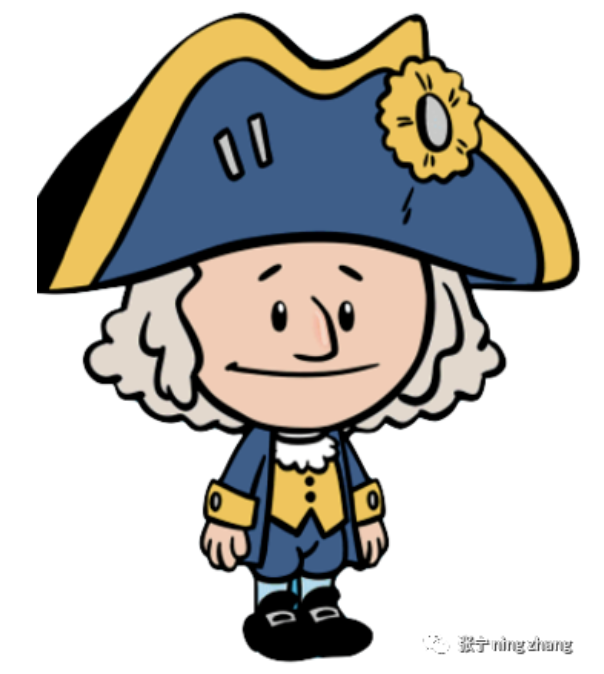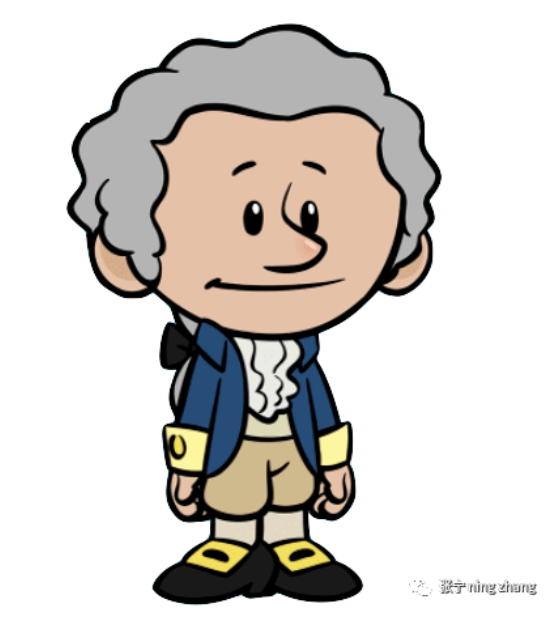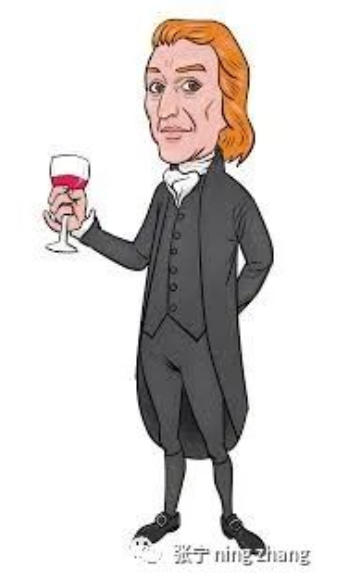张宁 ning zhang
北美小张老师的生活随笔 煮酒对诗谈吐春秋 烹雪饮茶琴棋书画 携幼扶老精耕细作
编者按:
2020是魔幻的一年,在已经过去的半年中,先是席卷全球的新冠病毒,让12万美国人为之丧生,百万人染毒,千万人失业。5月底,一个黑人被警察跪死,导致全美抗议游行,并引发暴乱。下半年,随着逼近11月份的总统大选,党派之争会持续升温,各种极端势力登台表演,将导致美国社会撕裂加剧,动荡不安。今年父亲节(6月21日),美国国父们纷纷爬出坟墓,看到如今的乱世景象,他们会怎么说?(中英文)

乔治·华盛顿
乔治·华盛顿在波特兰市的雕像在6月18日夜间被推倒了。我的猜测是,善良的老乔治不会觉得此事可乐。华盛顿将军是一个相信举止端庄的人。在16岁之前,乔治·华盛顿已抄下含有110条文明行为规则的清单。这些规则表明,尊重同胞以确保和谐社会,他赞赏这一手段的重要性。那些加入污损或推倒雕像的不计后果的人们最好考虑一下乔治·华盛顿的两个明智的建议:
“如果你珍视自己的名声,就应与贤良交往;因为自处下流还不如离群索居。”
“在争端中,不要总想占上风,要给每个人发表意见的自由。”
如果有机会“致敬”那些销毁古迹的人,华盛顿将军可能会努力传达与他1783年在纽约州纽堡的会议上向军官们传达的相似信息。由于没有领到薪水,之前承诺的退休金也没有发放,军官们对国会愤愤不平,并在考虑叛乱。华盛顿向他们保证,他了解他们的抱怨。华盛顿从他的口袋里拿出一封信,在阅读之前停了一下,他接着说:“先生们,请允许我戴上眼镜,因为在为国家的效力中,我不仅头发变白了,而且几乎失明了。”
华盛顿将军知道如何给人留下深刻印象。今天的美国公民应该理解他和他同时代的其他爱国者在共和政体的伟大实践中所遭受的痛苦。如今,我们所有人也可以借鉴华盛顿的勇气和智慧。

亚历山大·汉密尔顿
亚历山大·汉密尔顿了解暴民行动的力量和危险:
“人民动荡不安,变化万端;他们很少判断正确或做出正确的决定。”
对目前的境况,亚历山大·汉密尔顿可能不会感到惊讶,因为人们不断被社交媒体激发,从而对国父们充满愤怒,因为他们只不过是压制有色人种的“死去的白人”。
纵观汉密尔顿的一生,他本人正是他的政治敌人散布众多谣言的靶子。他承认“没有一个人物,无论品行多么端庄正直,能够抵挡的了反复不断的、哪怕是虚假的攻击。”
汉密尔顿时代的报纸比今天的报纸,党派相争更为露骨。所以,在汉密尔顿看来,像《纽约时报》这样的知名媒体推动对美国历史的不准确的历史性改写以符合其世界观,这是很自然的。如果人们经常听到,国父们是为了保留奴隶制而在美洲煽动并发起针对英国革命的,那么他们可能真的会开始相信它。

托马斯·杰斐逊
托马斯·杰斐逊曾有过几段名言:
“时不时地叛乱是一件好事,在政治世界中的风暴,就像现实世界中风暴一样,都是必不可少的……这是维持政府健全健康的必要药物。”
“自由之花需要经常用爱国者和暴君的鲜血来浇灌。”
在法国大革命演变成极端暴力之前,托马斯·杰斐逊是早期法国大革命的坚定支持者。杰斐逊可能比其他的国父们更愿意相信暴民的行动可能会带来一些好处。
当看到当代美国人为如何建立一个“人人生而平等”的公正的社会而苦苦挣扎,当看到自己的雕像被推倒时,他可能会露出困惑的微笑。但是,一旦了解了法国大革命的暴力路线,他就不会那么乐观了。
英文版:
On Father’s Day of 2020, our founding fathers crawled out of their tombs,
bewildered by the chaos of the country. What would they say?
We found out today (June19, 2020) that George Washingon ‘s statue in
Portland was pulled down overnight. My guess is that good old George would not
have been amused. General Washington was a man who believed in dignified
behavior. Before age 16, George Washington had copied down a list of 110 rules
for civilized behavior. These rules indicate his appreciation of the
importance of treating fellow citizens with respect as a means to ensure a
harmonious society. The people who have joined the thoughtless mobs that have
defaced or pulled down statues would do well to consider the wisdom of just
two of these recommendations:
“Associate yourself with Men of good Quality if you Esteem your own
Reputation; for ’tis better to be alone than in bad Company.”
“In Disputes, be not So Desirous to Overcome as not to give Liberty to each
one to deliver his Opinion.”
Given the opportunity to address those who would destroy the monuments to the
founders, General Washington might strive to deliver a message similar to the
one he imparted to a group of his officers in a meeting in Newburgh, New York
in 1783. The officers, angry with Continental Congress for its failure to pay
them for their service, were considering a revolt. Washington assured them
that he understood their complaints. Pulling a letter from his pocket,
Washington paused before reading it, saying, “Gentlemen, you will permit me to
put on my spectacles, for I have not only grown gray but almost blind in the
service of my country.”
Washington knew how to make an impression. American citizens of today should
understand how much he and the other patriots of his day suffered to bring
forth this great experiment in republican government. We all could use the
courage and wisdom of a Washington these days.
Alexander Hamilton had an understanding of the power and danger of mob
action:
“The people are turbulent and changing; they seldom judge right or make good
decision.” He likely would have not been surprised that people would be roused
to anger toward the founding fathers through continuous social media criticism
of them as just “dead white guys” who repressed people of color.
Hamilton was the subject of many rumors spread by his political enemies, and
he acknowledged that “no character, however upright, is a match for constantly
reiterated attacks, however false.” Newspapers of his day were even more
openly partisan than today’s. It would seem natural to Hamilton that a
supposedly reputable media outlet such as the New York Times would push
historically inaccurate rewritings of American history to match its world
view. If people hear often enough that the founders instigated revolution
against Great Britain in order to maintain slavery in the Americas, then they
start to believe it.
Thomas Jefferson famously wrote that “a little rebellion now and then is
a good thing, and as necessary in the political world as storms in the
physical…It is a medicine necessary for the sound health of government” and
“the tree of liberty must be refreshed from time to time with the blood of
patriots and tyrants.”
Thomas Jefferson was a strong supporter of the French Revolution in its early
stages, before it devolved into extreme violence. Jefferson might have been
more willing than some of the other founding fathers to believe that something
good could come from mob actions. He might allow a bemused smile at seeing his
own statue toppled as the current generation of Americans struggles with
questions of how to build a just society and how to pursue a state where “all
men are created equal”. But knowing the violent route of the French Revolution
might make him less optimistic.
Reference:
https://www.cnn.com/2020/06/19/us/portland-george-washington-statue-toppled-
trnd/index.html
【编者按】 本文仅代表作者观点,不代表APAPA
Ohio及OCAA官方立场。所有图片均由作者提供或来自网络。如存在版权问题,请与我们联系。更多精彩文章,请查看我们公众号的主页。欢迎大家积极投稿!